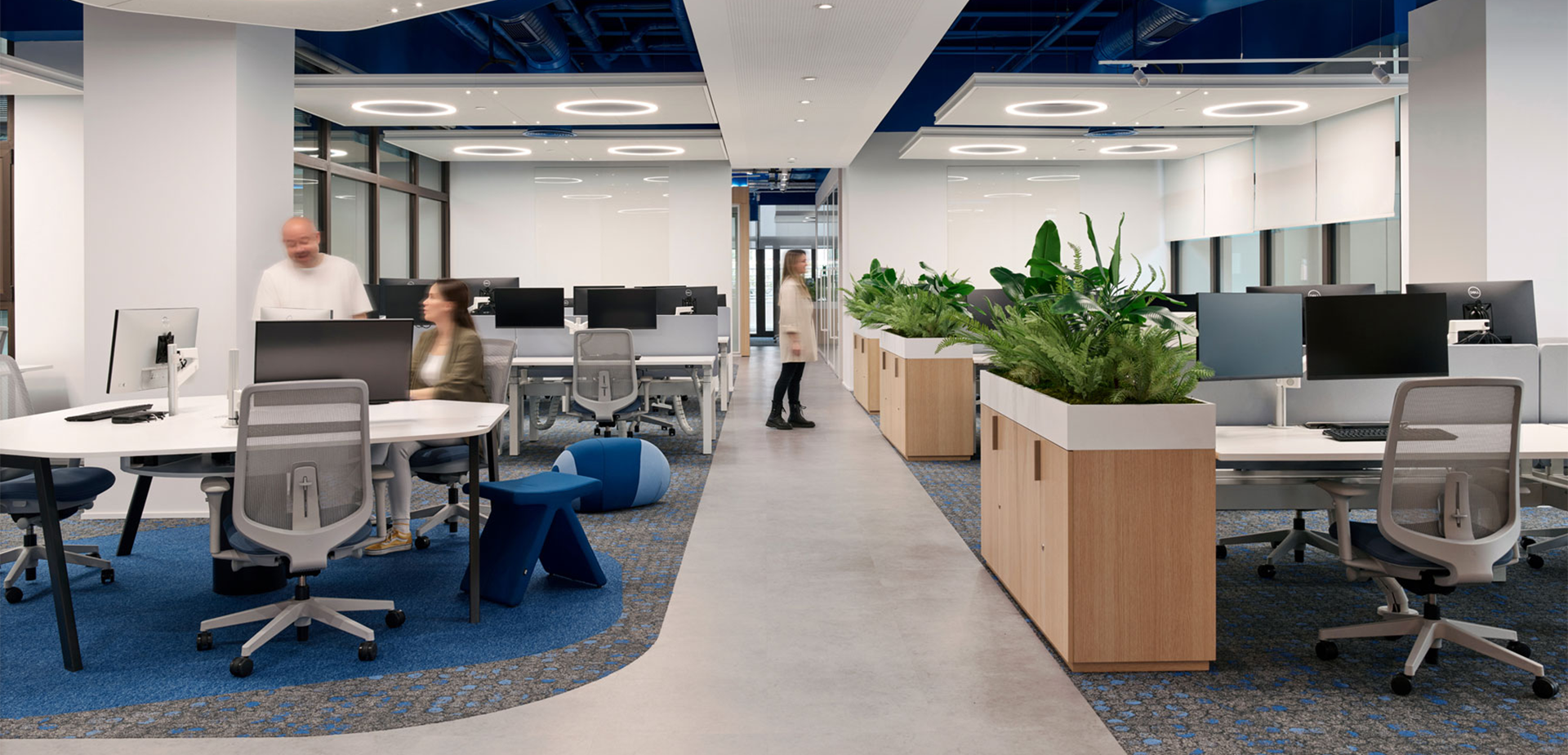-
Exploring innovation is a great investment opportunity for progressive organizations. As workplaces change to prioritize collaboration spaces, mentorship, and spontaneous innovation, service firms are starting to reimagine traditional office spaces to accommodate impromptu social gatherings and professional interactions. The landscape of workspace amenities is transforming, with team rooms, breakout spaces, holistic areas, work-focused lounges, and informal meeting spaces becoming integral components of the modern workplace ecosystem.
In real estate strategy, operating in innovation mode is poised to revolutionize traditional thinking. Clients are increasingly embracing a mindset of experimentation, recognizing the value of testing ideas through pilot programs to inform strategic decision-making. By leveraging innovative technologies and adaptable work practices, professional services firms can gain invaluable insights into employee preferences, foster a vibrant organizational culture, and pilot novel concepts with agility and confidence.
-
-
-
“In the words of Dr. Maya Angelou, ‘If you don’t like something, change it. If you can’t change it, change your attitude.’ This ethos resonates deeply with forward-thinking firms as they navigate the complexities of modern work dynamics, actively embracing hybrid models to foster innovation and adaptability. By prioritizing mobility, enhancing workplace amenities, and curating exceptional employee experiences, organizations position themselves for sustained success in a diverse, multigenerational workforce.” (Source: Dr. Maya Angelou)
-
The legal industry acknowledges that physical spaces are critical in attracting and retaining talent. Therefore, the future of legal office design is focused on promoting collaboration and social cohesion. Law firms are reimagining their offices as dynamic workspaces encouraging knowledge sharing, mentorship, and professional development. Law firms are expected to increase their competitive edge and become preferred destinations for legal professionals by creating environments that facilitate meaningful interactions and foster community.
-
-
In parallel, the imperative for empathy in the workplace remains as crucial as ever. Aligning organizational missions with tangible actions enables companies to distinguish themselves as champions of inclusivity and diversity. While many diversity, equity, and inclusion (DEI) initiatives are still nascent, there is a growing recognition of the need to formalize and institutionalize these efforts. Over time, DEI task forces and roles are expected to evolve, embracing a broader spectrum of diverse considerations, including gender, cultural background, neurodiversity, and the value of fostering an intergenerational workforce.
In conclusion, the journey towards operating in innovation mode represents a paradigm shift in workplace design and strategy. By embracing experimentation, innovation, and empathy, organizations can chart a course toward sustainable growth and competitive advantage in an ever-evolving business landscape. From reimagining office spaces to fostering a culture of inclusivity and belonging, the possibilities for transformative change are limitless. As we navigate the complexities of the modern workplace, let us embrace the spirit of innovation, pioneering the future of workspace dynamics with courage, creativity, and compassion.



